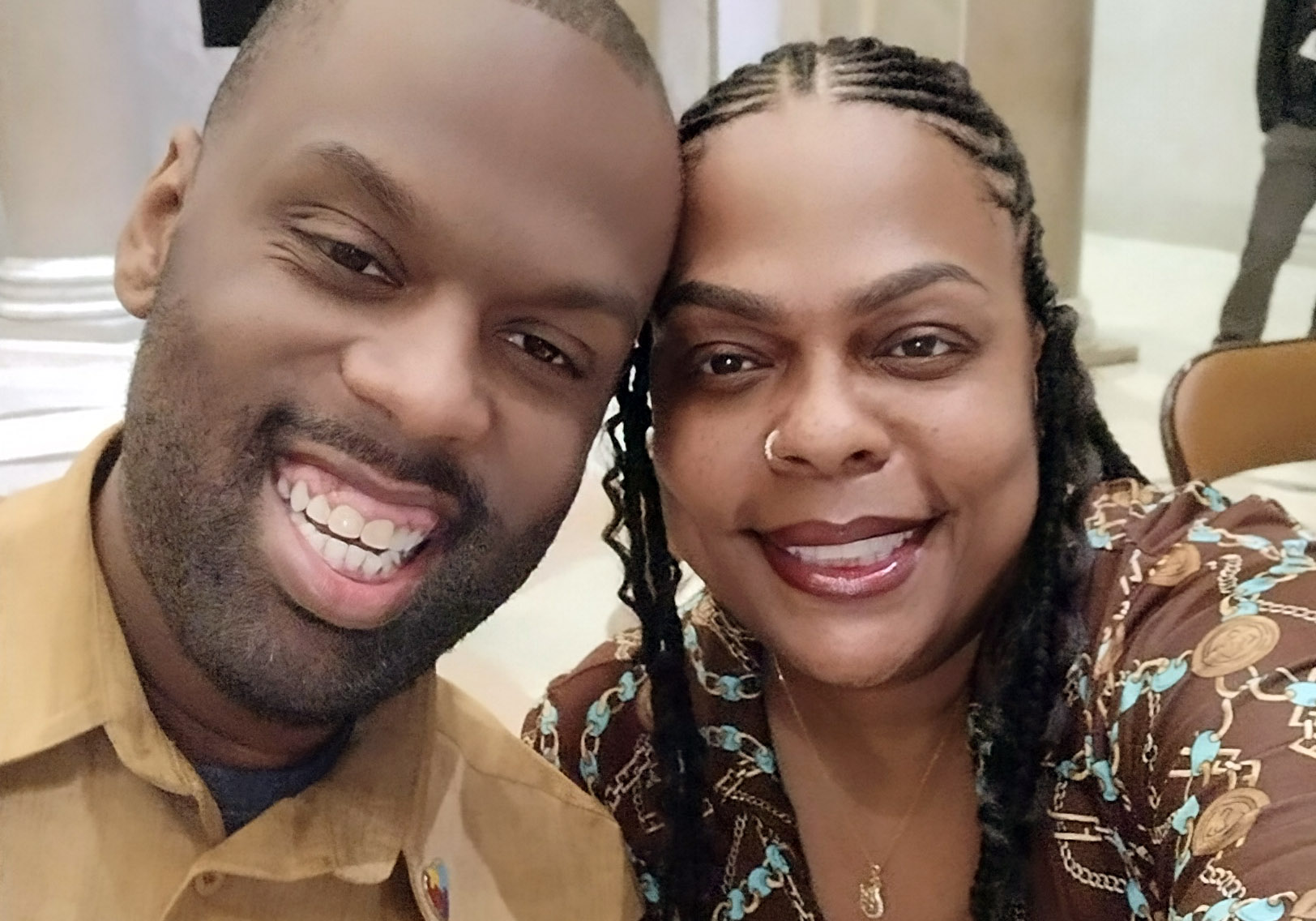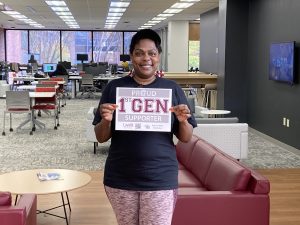Graduating Student Spotlight: Veronica Tess Myers

Veronica Tess Myers, a first-generation student, is set to graduate on May 13 with a master’s degree in applied communication studies.
She is an accomplished disability advocate who is often known as “The Autism Lady” due to her extensive advocacy career spanning almost three decades for individuals with autism and other disabilities.
Myers’ exceptional contributions have earned her multiple awards. She has generously volunteered her time and expertise to serve on numerous boards, protection and advocacy committees, advisory councils, and task forces.
Tell us a little bit about yourself.
I was born into a poverty-stricken household in Stuttgart, Arkansas, where my parents struggled with generational curses they couldn’t escape. My estranged father battled violent alcoholism, and my mother was abusive as well. In 1978, we moved to Little Rock, Arkansas, when I was eight years old. I have a younger brother, but our relationship is distant due to our mother’s estrangement efforts.

My only child, Alexander, was diagnosed with severe/profound autism and sensory processing disorder at the age of two, and later with intellectual developmental disability during high school. My ultimate life goal is to ensure that Alexander has the support he needs from me and his self-directed community to avoid institutionalization.
How have you advocated for Alexander?
My primary objective is to help Alexander integrate into the wider community, as individuals with special needs are often marginalized and excluded. Despite the absence of genuine inclusion, children like Alexander are often expected to succeed in environments that are not accommodating to their needs. To equip him with the skills necessary to pursue a trade profession, I assisted him in obtaining his high school diploma at Hall High. Additionally, I volunteered at his school to ensure that he had my support and accessibility, and to safeguard his right to a Free and Appropriate Public Education (FAPE) in his Least Restrictive Environment (LRE).
Due to his autism and sensory processing challenges, Alexander has experienced involuntary restraint in the past. To address this, I provided him with tools to self-regulate, such as exercise and diet, instead of relying on psychotropic medications. For example, I placed books in his backpack to help with balance and to reduce the likelihood of elopement.
As a volunteer at CHI St. Vincent Hospital, I observed that special needs students from Hall High were relegated to stuffing envelopes in the basement. Recognizing the importance of social skills and verbal communication for individuals like Alexander, I worked with CHI St. Vincent’s volunteer coordinator to secure a position for him serving refreshments to orthopedic surgery patients. This opportunity provided him with the necessary experience to improve his skills and confidence.
Why did you choose UA Little Rock?
It wasn’t a particular reason, just a desire to earn a reasonable salary by furthering my education. When The Bombay Company, where I held a co-management position, went bankrupt in 2008, I decided to put my undergraduate degree on hold. However, I later earned my bachelor’s degree in Fall 2021 and pursued a graduate degree to better equip myself for building community-based partnerships that accommodate the needs of my son and others with disabilities who face the challenges of true inclusion and acceptance.
I completed my master’s degree in applied communication studies in just one year and one semester, including summer courses, entirely online (May 2023). My graduate thesis, “Black Autistic Men and Law Enforcement Interaction: Building Understanding Through Communication Training,” explored how the Little Rock Police Department can reframe de-escalation strategies when encountering black autistic men and autistics in general.
Tell us about your nonprofit organization.
In 2011, I founded Alexander’s Secret, a non-profit organization aimed at supporting parents and families dealing with Autism Spectrum Disorder (ASD) and the challenges they face in meeting the educational and community-based needs of their loved ones. The organization works to raise awareness about the inequities experienced in education and community services and provides assistance to families in navigating the complex systemic issues related to public schools, home and community-based services, and relevant laws. Additionally, I have served on multiple boards and councils advocating for disability rights.
You are an extremely giving and thoughtful person. What makes you different?
I have a conscience. Though I was once self-centered, having Alexander changed my perspective and ignited a desire within me to create a supportive community for him and to improve his experience in the world. Alexander knows what I do for him. He is highly perceptive, and will hold my face in his hands if he thinks something is wrong. It is critical that we recognize the needs of those who cannot advocate for themselves, especially our children who are often overlooked. Alexander is the epitome of resilience, continually pushing forward despite any obstacles he may encounter. My motto; “Alexander’s the MAN, Mommy’s the BACK-UP PLAN!”
